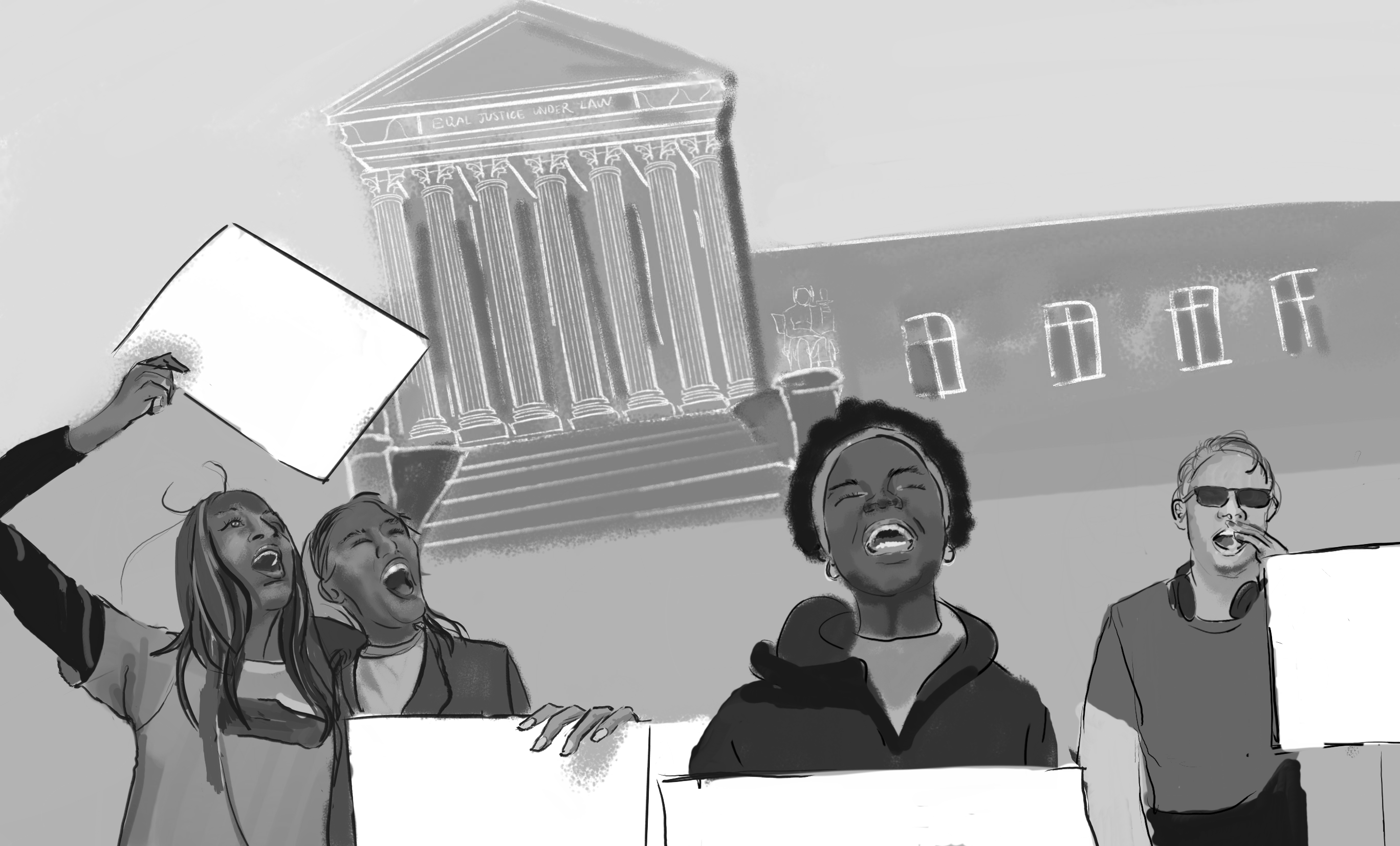“Diversity is our power,” read a sign held up by a protest-er outside the United States Supreme Court on October 31. They were protesting for one specific reason — the Supreme Court seems poised to scrap affirmative action, a series of policies passed by the government that man-dates that colleges accept more diverse pools of students. Within a school as academically competitive as PHS, con-tention surrounding the subject is undeniable. Students and faculty at PHS and the Princeton community as a whole should refine our understanding of the topic and understand why it is such a shame that the Supreme Court will probably rule affirmative action as unconstitutional. We need to find a way to reckon with the opportunities that such a decision would take away from minorities, because the loss of affirmative action would also result in a devastating loss of equality and diversity in America’s elite colleges, and, by extension, its eventual leadership. Many assume that the anti-discrimination laws the U.S. has, which protect people from explicit discrimination on the basis of race, gender, and sexuality, are enough, but that is far from the truth. Those who belong to un-derrepresented racial minorities still experience great inequality on college campuses and private workplaces. In order for this gap in enrollment and hiring to slowly close, affirmative action should not be struck down. A study by Georgetown University in 2021 found that 11 percent of Latinx people and 14 percent of Black people over the age of 25 have a bachelor’s degree, compared to 21 percent of white people and 31 percent of Asian people. This discrepancy also resulted in lower average yearly salaries for Black and Latinx people. When college admission offices take affirmative action into consid-eration, they also help to decrease those problems. The wealth gap will only increase without affirmative action. Already, affirmative action has been made illegal in pub-lic universities across several states. This has left some top universities from states like California and Michigan fac-ing massive declines in student diversity. In 2021, report-ers at The New York Times found that one such school, the University of California, Berkeley, had a freshman class of 6,931 students, and of those students, only 258 were Black and 27 were Native American. Clearly, without affirmative action, the diversity of student bod-ies at top colleges across the country would plummet. In 2022, The Daily Princetonian found that most Princeton University students are in strong support of affirmative action. A group known as AASA (Asian American Students Association) that has led a peti-tion to voice their support for affirmative action. PHS students should also make their voices heard about the subject, or at least find ways to help increase di-versity wherever they go to college, which will likely be after affirmative action is ruled unconstitutional. Proponents of what will likely be the Supreme Court’s ruling on the subject claim that income-based affir-mative action will do more good than race-based af-firmative action. Unfortunately, there’s no guarantee that such policies will be passed. But additionally, low income white students do much better on the SAT than their black counterparts, and also make up much more of the low income population (in sheer num-bers), which is why the Journal of Blacks in Higher Education finds in 2014 that income based affirmative action would ensure that white students “continue to hold a huge admission advantage over Black students.” In reality, PHS students can‘t do much about the fact that the Supreme Court will likely rule affirma-tive action unconstitutional. They can, however, real-ize how the decision will be harmful, and strive to make sure their classes, extracurriculars, and jobs are accurately reflecting the diversity of our nation.
Why affirmative action will be missed
November, 2022